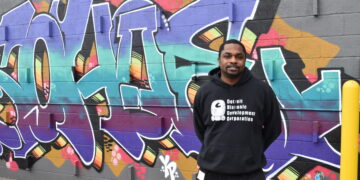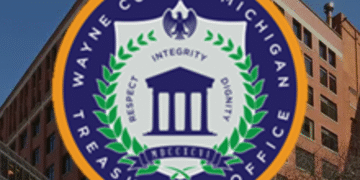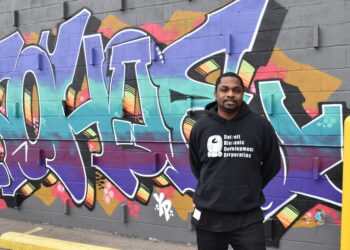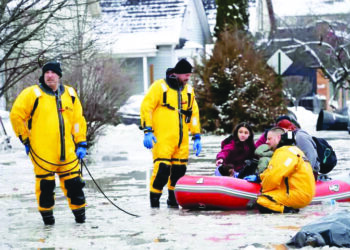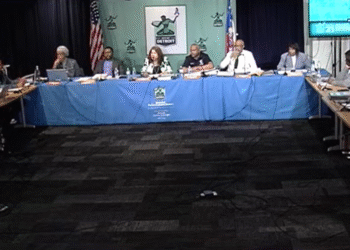For many, identifications and licenses are something taken for granted, but for undocumented
immigrants, lacking a proper ID can mean barriers to childcare, healthcare, and access to
financial institutions.
The city of Detroit aimed to solve this issue in 2016, roughly nine years after the state
overturned the Drive SAFE package, creating a municipal ID program that enrolled more than 8,000 residents before being shut down for privacy concerns.
Close to 7 percent of Michigan’s population is undocumented, equating to more than 600,000
residents from Mexico, India and Iraq, according to the American Immigration Council. City of Detroit officials estimate that anywhere from 8,000 to 20,000 may be living in Southwest Detroit.
Detroit tried to bring the program back in 2020 after the COVID-19 pandemic forced it to pause, and it enrolled another 883 residents before Councilmember Gabriela Santiago-Romero raised
red flags about residents being put in danger.
A 2021 report by the city’s Immigration Task Force, co-authored by the Northeastern University School of Law, found evidence of the Immigration and Customs Enforcement Agency (ICE) purchasing information from companies connected to municipal ID programs, and using the data to increase surveillance against marginalized communities.
When asked if the residents previously enrolled in the program should be worried about their information being obtained by ICE, Santiago-Romero said “We [Immigration Task Force] are concerned and frankly disappointed that there were that many people who signed up who could potentially be at risk for their data to be shared”.
Santiago-Romero said the task force was late to realize a problem existed because the
Immigration Task Force had not been invited to be involved with the vendor selection during the
May 2022 revamp. Moving forward, they will have a role in every step of the process.
“We are now working closely with the (Detroit) Health Department, we are reviewing the RFPs (Requests for Proposals), we are going to be reviewing who the vendors are themselves, we’re
also asking everything to be brought in-house, another way to ensure we aren’t working with a vendor who could potentially sell the data,” Santiago-Romero said.
At the state level Policy Director for We the People Michigan Yvonne Navarrete has been championing the state’s reimplementation of its “Drivers License for All” bill and said her team learned a lot through Detroit’s Municipal ID program.
Navarrete, a DACA recipient who grew up in Southwest Detroit, said she remembers the fear that gripped the community in 2007 when the license law was reversed by then-state Attorney General Michael Cox.
“I remember the feeling in my family, and other families, that there was a countdown to driving safely…ever since then driving has become an anxious, fear-inducing activity for my parents,” she said.
Navarrete said the bills were introduced to the State Senate and House on April 12, 2023 with the votes to approve the bills coming in at the Senate level but have seemingly stalled in the House with 54 of 56 Democrats currently on board; the two holdouts are Tullio Liberati of District 2 (Lincoln Park) and Nate Shannon of District 58 (Sterling Heights).
In an exclusive interview with EL CENTRAL, Director of the Office of Global Michigan Poppy
Sias-Hernandez said she’s worked closely with the Governor’s Office to ensure legislators are working hard to rally support for the bills. “I just think we know that having access to a driver’s license is part of how we signal that we’re a welcoming state,” Hernandez said. “It feels like
we’re moving in the right direction.”
Governor Gretchen Whitmer said she encourages all business owners and those within law
enforcement to trust in the DRIVE Safe bill. “[This would be] a way to grow our economy (and) grow our population, which is in all of our interests,” Whitmer said.
Navarrete said House Democrats brought in immigration lawyers from the Michigan Immigrant
Rights Center and the ACLU to incorporate the best practices to protect against data breaches
used around the country into the most recent version of the bill.
Navarrete’s efforts are just one example from one of several organizations that make up the
Drive Michigan Forward Coalition, a group run by immigrant residents working to raise support for the legislation. Members include the ACLU Michigan, Action of Greater Lansing, ACCESS,
Interfaith Council for Peace Justice, Interfaith Action, Detroit Jews for Justice, Detroit Hispanic Development Corporation, Berrien Immigrant Solidarity Network and the Michigan Immigrant Rights Center, among many others.
The legislature has about three weeks left to make a decision on the Drivers License for All Bill
before it adjourns in mid-November.
At the local level, Santiago-Romero said she hopes the Detroit City Council will have a new, safe, vendor chosen and approved by January and encourages residents to feel comfortable enrolling in the program again.
Moving forward, Detroit’s Municipal ID program will not create a paper trail, Santiago-Romero said, operating entirely in-house and collecting zero data on residents.
“The Detroit ID is going to be safe. This relaunch is safe. I understand the fear that folks have
but also the need that the State of Michigan has yet to give undocumented folks access to driver
licenses,” Santiago-Romero said, “but we are ensuring that the Detroit ID program is safe,
accessible and that residents feel good about.”
Amelia Benavides-Colón is a senior at Wayne State University studying Journalism and Global
Studies. Amelia is a Southwest Detroit native with more than three years of reporting experience
with The Detroit News, Outlier Media, and Crain’s Detroit Business and is the former Editor-in-
Chief of WSU’s student-run newspaper The South End.


